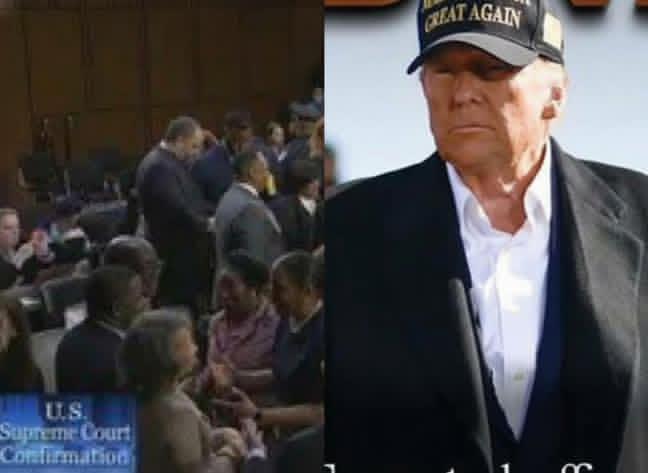CELEBRITY
UPDATE: The Supreme Court Issues Emergency Injunction Blocking President Trump From Using a Single Dime of Taxpayer Funds to Pay ACECO’s Unpaid Demolition Balance and Compensation After the Company’s Court Victory

Washington, D.C. — In a dramatic late-night order that sent shockwaves through the nation’s political and legal landscape, the U.S. Supreme Court has issued an emergency injunction preventing President Donald Trump from using any taxpayer funds to cover the outstanding demolition bill owed to ACECO Demolition & Environmental Services.
The ruling comes just 48 hours after ACECO won a federal lawsuit affirming that the White House—under Trump’s direction—had failed to pay millions in demolition fees related to the controversial tearing down of the East Wing. The company was awarded its unpaid balance plus compensation for delays, damages, and legal costs.
But in an unexpected twist, the administration immediately announced plans to classify the payout as a “national executive necessity,” attempting to authorize Treasury transfers to settle the debt using public funds.
The Supreme Court’s unanimous injunction halted that effort instantly.
A Rare Rebuke From the Court
In the unsigned order, the Court stated that “no emergency, national interest, or executive prerogative exists that would justify the diversion of taxpayer resources to settle liabilities arising from an unauthorized and potentially unlawful demolition of federal property.”
The decision emphasized three critical points:
The East Wing demolition was not formally approved through any legal or administrative channel.
The project benefited no public interest, serving instead “a personal enrichment or aesthetic preference.”
The government cannot be compelled—or allowed—to pay debts “arising from actions outside presidential authority.”
Legal scholars called the language “stunning,” “rare,” and “borderline unprecedented” in its direct criticism of a sitting president’s conduct.
ACECO Victorious, Yet Still Unpaid
While ACECO celebrated its courtroom win earlier this week, the Supreme Court’s ruling means the company must now wait to see who — if anyone — will ultimately pay the multimillion-dollar award.
Experts say the responsibility now falls personally on:
The Trump campaign
The Trump Organization
Trump’s post-presidential office
Any private donors involved in the demolition project
But without taxpayer backing, ACECO may face a lengthy battle to actually collect.
“This decision leaves ACECO with a judgment but no guarantee of payment,” said constitutional attorney Melissa Harwood. “They won — but the real fight begins now.”
Congressional Leaders React Within Minutes
The moment the order was released, reactions poured in from both sides of the aisle.
Democratic lawmakers praised the Court for “preventing taxpayer theft” and “protecting the nation’s coffers from presidential misconduct.”
Republican lawmakers were split. Some condemned the decision as “judicial overreach,” while others privately admitted that forcing taxpayers to foot the bill for an unapproved demolition would have been “politically suicidal.”
White House Denounces the Ruling
In a brief but fiery statement, the Trump administration called the injunction:
> “A deliberate attempt to interfere with Presidential authority and obstruct a financial obligation inherited by the federal government.”
The statement did not clarify how the White House intends to move forward — nor did it address the Court’s central argument that the demolition itself was not legal in the first place.
What Happens Next?
The injunction remains in effect while the Court prepares to review the case in full, a process that could take months.
In the meantime:
No taxpayer dollars can be used for the demolition debt.
ACECO’s lawyers are exploring options for liens, asset seizures, or contempt motions.
Congressional committees have already requested internal documents related to the demolition project.
Watchdog groups are pushing for a full federal audit of demolition funding and donor involvement.
Political analysts say the ruling marks one of the most consequential showdowns between the Supreme Court and the Trump administration in recent memory.
“This is not just about a demolition bill,” Harwood noted. “This is about the limits of presidential authority — and the Court just drew a very bright line.”













